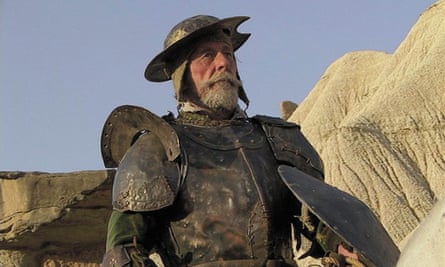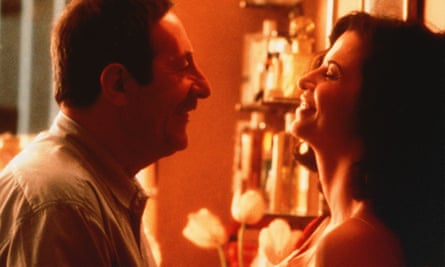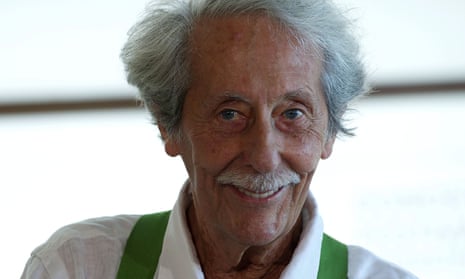Jean Rochefort, the French actor who played a key role in one of the most ill-fated movie sagas in Hollywood history, has died aged 87, his daughter said on Monday.
Rochefort was a French national treasure when he was cast to play Don Quixote in 1998 by the former Monty Python member Terry Gilliam, who dreamed of bringing Cervantes’ “unfilmable” novel to the big screen.
But the wildly ambitious project – in which Johnny Depp was to play a marketing executive sent back in time who the elderly knight mistakes for his squire, Sancho Panza – quickly began to fall apart. The veteran actor was struck by a prostrate infection on the first day of shooting in Spain which left him in agony on the back of his half-starved horse. Then on the second day a flash flood washed away the sets. Four days later the production collapsed when Rochefort had to be airlifted to hospital for surgery for a double hernia.

Over the next two decades Gilliam failed seven times to get the project off the ground again, and his doomed efforts to revive it became the subject of an acclaimed documentary, Lost in La Mancha. But last year Amazon finally agreed to fund the film and The Man Who Killed Don Quixote – without Rochefort – is due for release in 2018.
Rochefort was withering about working with Gilliam, telling French television in 2014 that the American director had starved his horse before shooting began to make it look haggard. An experienced horseman, Rochefort said he was shocked to see “the people around me had apples tied to their backs” so the horse would follow them. He said the horse died the day after he left the set.
Rochefort was a mainstay of the French film industry for more than half a century, appearing in comedies and popular blockbusters as well as art films. He won three Césars - the French answer to the Oscars - the first for Bertrand Tavernier’s 1975 costume drama Let Joy Reign Supreme and another three years later for the naval drama Le Crabe-Tambour (Drummer-Crab). A lifetime achievement César followed in 1999.
Famous for his wit and self-deprecating humour, he later joked: “I am part of [French] national heritage. There is Bayonne ham, [Philippe] Noiret, [Jean-Pierre] Marielle and me,” in reference to two other well-known ageing actors.

Born in Paris to prosperous parents, Rochefort claimed to have had a deadly dull childhood in the western city of Nantes. “Lord, I was bored as a child,” he said. Listening to the radio sparked his interest in theatre, and he fled to study acting in Paris. His movie breakthrough did not come till he was nearly 30, however.
Roles in movies such as Angelique and Le Masque de Fer (The Iron Mask) followed, and director Yves Robert began casting him on a regular basis, starting with Le Grand Blond avec une Chaussure Noire (The Tall Blond Man with One Black Shoe) in 1972. The lugubrious-faced actor had a major international hit in 1990 with The Hairdresser’s Husband, directed by Patrice Leconte, and subsequently acted in a number of Leconte’s better know films, including Ridicule and The Man on the Train. Aside from his appearance in Lost in La Mancha, Anglo-American audiences might recognise him from cameos in Robert Altman’s Pret a Porter, and as the waiter who presents Rowan Atkinson with a plate of shellfish in Mr Bean’s Holiday.
He formally retired after starring in his last film Floride (Florida) in 2015, playing a former industrialist who appears to be suffering from Alzheimer’s disease. “I do not want to make horror films, so I had better stop,” he said.

Comments (…)
Sign in or create your Guardian account to join the discussion